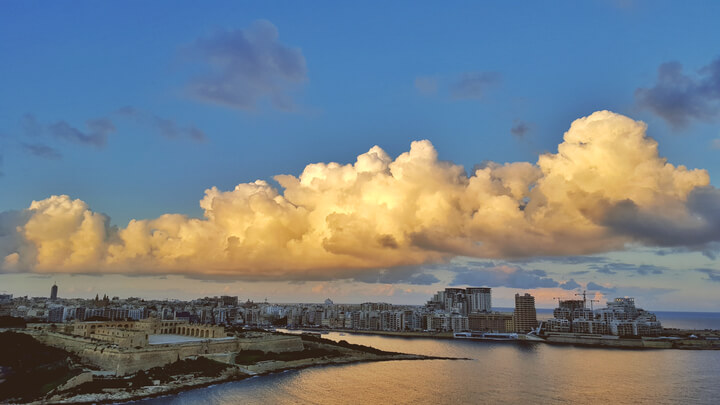Austria corporate tax - guide for international expansion
Learn about the corporate tax system in Austria, its current rates, how to pay your dues and stay compliant, and best practices.

In the global landscape, Malta enjoys a business-friendly reputation. This reputation does holds some accuracy, but the bigger picture is much more complicated. If you are considering starting a business in Malta, you’ll find yourself navigating a somewhat complex landscape.
The World Bank’s “Ease of Doing Business Index” ranks Malta as the 84th most business-friendly country in 2017 (out of 190 countries).¹ Malta ranks lower when compared solely with other EU nations. Additionally, the World Bank ranks Malta as the most challenging place to start a business in the region.²
In recent years, Malta has improved the landscape for entrepreneurs by launching a new public credit registry, and reducing the time it takes to register a company. Malta has a very manageable population of less than 500,000, and English is widely-spoken. On the other hand, Malta also launched a new property transfer tax, making it more expensive for employers in the country.
While starting a business in Malta won’t happen overnight, many expatriates have launched thriving companies. Here are some important tips and tools for entrepreneurship in Malta.
Company Types
Corporate laws in Malta offer a range of options for entrepreneurs. Maltese businesses are subject to EU legal directives. In Malta, you can set up the following types of business vehicles:
Sole Proprietorship
This is the simplest type of company to set up. If you are self-employed and don’t plan to hire employees right away, this is your most direct option. Sole proprietorships do not have set up or registration costs. If your income does not exceed 35,000 Euro for goods or 24,000 Euro for services, you do not even have to register for Value Added Tax. You will also have complete ownership over your business.
Limited Liability Companies (LLCs) - These companies can also come in the form of branches or subsidiaries. They are either private LLCs or public LLCs. A private LLC cannot have more than 50 shareholders, and must have a minimum share capital of 1,200 Euro. A public LLC must have minimum share capital of 46,600 Euro. Public companies can trade their shares on the Malta Stock Exchange. Branches or subsidiaries of international companies may also register as LLCs in Malta.
Partnerships - A partnership in Malta is either general or limited. The registration for a partnership is also quite straightforward, in that it only requires a drafted and notarised agreement. A general partnership means more than one party shares in the debt and the obligations of an entity. A limited partnership means that there are both ‘general partners’ and ‘limited partners.’ The general partners manage the company, and are responsible for the company’s debt and obligations. The limited partners are only responsible in proportion to their contributions to the company.
International Holding Companies - International holding companies hold shares and/or business assets of international companies. Income and capital gains may be exempt from taxation.
Trusts - Maltese law allows the establishment of a trust, wherein a trustee transfers assets to a beneficiary. These assets might be money or property. Trusts are sometimes set up to circumvent certain taxes, or hold assets for an individual until they come of age, or even for charitable purposes.³
Company Registration
Depending on the type of company you’re setting up, the registration process can be quite efficient. It can be completed within a two-day window. A good first step is to register your company’s name online, with the Maltese Registry of Companies.⁴ You must then submit the required documentation to the Registry of Companies. The required documents include⁴:
After the documents are submitted to the Registry of Companies, your registration will be completed within 24 hours. In some cases, registration fees are required; the fee will depend on the amount of authorised share capital. For up to 1500 Euro of share capital, the registration fee is 245 Euro. The registration fee ranges from between 245 and 2,250 Euro, depending on the amount of share capital. You can partially complete the company registration online, but either you or your legal representatives must be physically present to sign off on certain documents. If you are just applying for a VAT or employer number, that can be done online.⁵
Legal Obligations
Taxes - The tax rate in Malta is 35 percent, but the effective tax rate is actually 5 percent. This rate is due to a rule that allows a 6/7ths tax refund to non-resident shareholders of a Malta trading company. In addition, no withholding taxes, stamp duties, or exchange restrictions apply to Maltese company profits. For example, a Maltese company can have share capital in any currency.
Filing Requirements - Companies registered in Malta are required to maintain accurate records of their accounts and activities.⁷
Employment Requirements - Employees of Maltese companies are allotted several national holidays each year. In addition, they are allowed four weeks and four days of holiday per calendar year. A pregnant employee gets sixteen weeks of maternity leave at full wages. Employees are also entitled to two weeks annually of sick leave at full wages.
Work Permits - Foreign nationals seeking to work in Malta require a work permit. Foreign nationals from EEA countries and Switzerland are exempt.⁸
Additional Resources
Maltese business resources are detailed and plentiful. Malta Enterprise is a development agency that helps facilitate business and investment in Malta.⁹ Individual advisors are on hand to help individuals to set up their companies. In addition, Business First is a public forum that streamlines a number of business services.¹⁰ They hold office hours in-person, and have a phone line where you can speak with advisors. The Malta Financial Services Authority is another official resource to turn to for information on company registration and law.¹¹
Sources:
1.https://data.worldbank.org/indicator/IC.BUS.EASE.XQ
2.https://data.worldbank.org/indicator/IC.BUS.EASE.XQ?locations=XC&year_low_desc=false
3.https://www.companyincorporationmalta.com/types-of-companies-malta
4.https://www.lawyersmalta.eu/open-a-company-in-malta
5.https://www.gov.mt/en/Services-And-Information/eforms/Pages/Landing%20Pages/Registration-as-an-Employer-and-VAT-Number-Request.aspx
6.https://www2.deloitte.com/content/dam/Deloitte/global/Documents/Tax/dttl-tax-maltaguide-2014.pdf
7.http://www.fbsmalta.com/malta-company-registration/
8.https://www.gvzh.com.mt/malta-law/employment-industrial-relations/permanent-residence-work-permit/
9.https://www.maltaenterprise.com/
10.https://businessfirst.com.mt/en/Pages/default.aspx
11.https://mfsa.com.mt/
This publication is provided for general information purposes only and is not intended to cover every aspect of the topics with which it deals. It is not intended to amount to advice on which you should rely. You must obtain professional or specialist advice before taking, or refraining from, any action on the basis of the content in this publication. The information in this publication does not constitute legal, tax or other professional advice from TransferWise Limited or its affiliates. Prior results do not guarantee a similar outcome. We make no representations, warranties or guarantees, whether express or implied, that the content in the publication is accurate, complete or up to date.
Disclaimer: The UK Wise Business pricing structure is changing with effect from 26/11/2025 date. Receiving money, direct debits and getting paid features are not available with the Essential Plan which you can open for free. Pay a one-time set up fee of £50 to unlock Advanced features including account details to receive payments in 22+ currencies or 8+ currencies for non-swift payments. You’ll also get access to our invoice generating tool, payment links, QuickPay QR codes and the ability to set up direct debits all within one account. Please check our website for the latest pricing information.
*Please see terms of use and product availability for your region or visit Wise fees and pricing for the most up to date pricing and fee information.
This publication is provided for general information purposes and does not constitute legal, tax or other professional advice from Wise Payments Limited or its subsidiaries and its affiliates, and it is not intended as a substitute for obtaining advice from a financial advisor or any other professional.
We make no representations, warranties or guarantees, whether expressed or implied, that the content in the publication is accurate, complete or up to date.

Learn about the corporate tax system in Austria, its current rates, how to pay your dues and stay compliant, and best practices.

Learn about the corporate tax system in Botswana, its current rates, how to pay your dues and stay compliant, and best practices.

Learn about the corporate tax system in Chile, its current rates, how to pay your dues and stay compliant, and best practices.

Learn about the corporate tax system in Montenegro, its current rates, how to pay your dues and stay compliant, and best practices.

Learn about the corporate tax system in Monaco, its current rates, how to pay your dues and stay compliant, and best practices

Learn about the corporate tax system in Costa Rica, its current rates, how to pay your dues and stay compliant, and best practices.